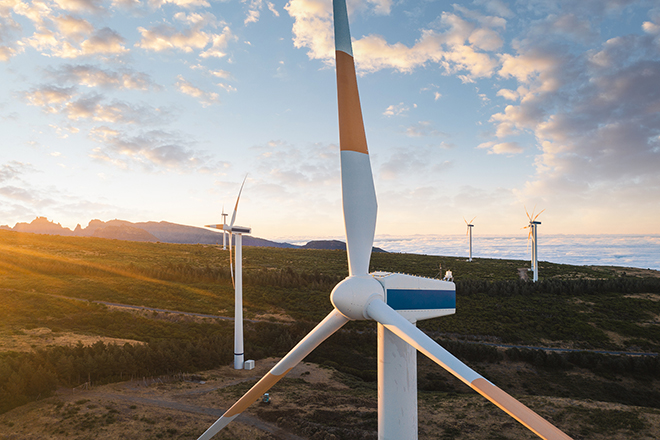
Global investments in renewables like this Portuguese wind farm will prevent a large rise in greenhouse gas emissions in 2022, the IEA said. |
The global deployment of renewable energy sources and electric vehicles is slowing the rise in greenhouse gas emissions from fossil fuel combustion significantly, the International Energy Agency has determined.
Although Russia's invasion of Ukraine and soaring natural gas prices have led some nations to rely more heavily on coal plants, the increase in pollution from such plants will be offset by an expansion of wind, solar and other renewable generation, the IEA reported Oct. 19. The IEA said the surge in electric vehicle adoption is also helping to keep carbon emissions in check.
Power producers are on track to add 700 TWh of renewable generation this year, led by solar photovoltaics and wind. Without that growth, emissions would have risen by 600 million tonnes in 2022, the Paris-based energy policy organization said. The full IEA report will be released Oct. 27.
Emissions rising less than 1%
Overall global greenhouse gas emissions are expected to grow just under 1% in 2022, the report projected, less than initially expected and far below the 6% increase in 2021. The IEA said nations are likely to release about 300 million more tonnes of climate-warming carbon dioxide in 2022 than in 2021, down from the year-over-year increase of nearly 2 billion tonnes in 2021 as economies recovered from the coronavirus pandemic.
The report offers a glimmer of hope just weeks before national delegates gather in Egypt for another round of tough negotiations to try to meet emissions reduction targets under the Paris Agreement on climate change.
"The global energy crisis triggered by Russia's invasion of Ukraine has prompted a scramble by many countries to use other energy sources to replace the natural gas supplies that Russia has withheld from the market," IEA Executive Director Fatih Birol said in a statement. "The encouraging news is that solar and wind are filling much of the gap, with the uptick in coal appearing to be relatively small and temporary."
The carbon intensity of the world's energy producers is also expected to improve slightly this year, "resuming a years-long trend of consistent improvement that was disrupted last year by the emissions-intensive economic recovery," the IEA said.
Despite its increase in coal consumption, the IEA expects that the European Union will reduce emissions this year while China's output will stay flat.
Even so, countries are on track to cut emissions by just 7% by 2030 from 2019 levels, an Oct. 19 report from the World Resources Institute concluded. That is far below the 43% climate scientists say is needed to keep global temperatures from exceeding the critical 1.5-degree C rise, the group warned.
S&P Global Commodity Insights produces content for distribution on S&P Capital IQ Pro.



